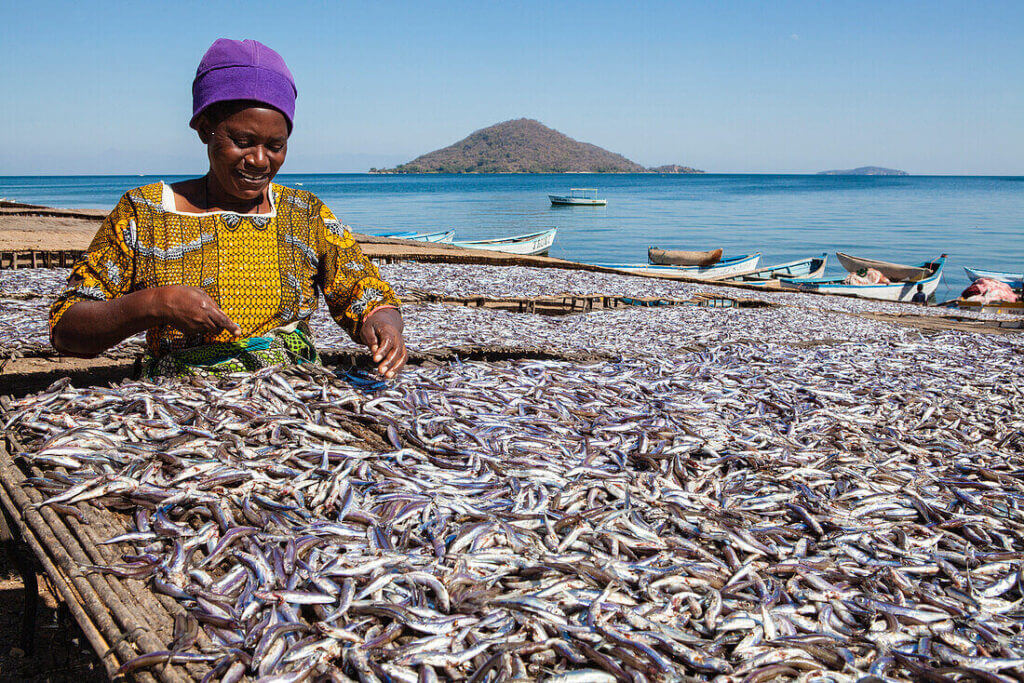
FAO’s FISH4ACP programme is making a significant impact on the lives of small-scale fishers and fish processors in the United Republic of Tanzania, particularly in the Lake Tanganyika region, where sprat, sardine, and perch fisheries provide livelihoods for 27,000 fishers and 11,000 processors. While the majority of fish processors in the country are women, poor fishing methods, climate change impacts, and Illegal, Unreported and Unregulated (IUU) fishing have all contributed to declining yields in recent years, leading to reduced income and food losses.
Through the FISH4ACP programme, which is funded by the European Union and the German Federal Ministry for Economic Cooperation and Development, participants have learned new methods for handling and processing fish, such as building and using drying racks and solar tent dryers, as well as better marketing techniques. These new methods help reduce food losses and increase revenue for the fish processors.
In addition to improving processing technology, FISH4ACP is also focused on building the capacity and business skills of fish workers at Lake Tanganyika. Fish processors are gaining new business skills and learning ways to reduce post-harvest losses that have been a problem for many years. Access to institutions for microfinance and loans is being provided to help them grow their businesses, as well as potential markets to help them unlock opportunities in the value chain.
Tumaini Godfrey Luhingulanyi, a 60-year-old grandmother, is an example of the programme’s success. In addition to the training she received, she installed a modern kiln processor, which is more efficient for drying fish than traditional kilns and produces higher-quality fish products with a longer shelf life. She now employs 10 people to help her with everything from carrying fish from the landing site to packaging, transporting and selling at the market. She has been able to build her own home, buy land, start a poultry farm, and pay her son’s tuition fees.
Women in the Lake Tanganyika region have suffered from poor access to capital and microfinance, as well as sexual harassment, workplace abuse, and robberies. Through FISH4ACP, they are now forming cooperatives and associations to advance their interests, gain greater access to finance, and improve their trade and marketing. The programme has also proposed further improvements in processing techniques, increasing participation by women, better coordinating access to urban markets, and complying more fully with legislation to ensure the sustainable use of fishery resources.
In conclusion, FAO’s FISH4ACP programme is making a significant contribution to food and nutrition security, prosperity, and job creation by safeguarding the economic, social, and environmental sustainability of fisheries and aquaculture value chains in the Lake Tanganyika region. By improving processing technology, building capacity and business skills, and promoting women’s participation, the programme is creating opportunities for small-scale fishers and fish processors to improve their livelihoods and contribute to the sustainable management of fisheries resources.


















